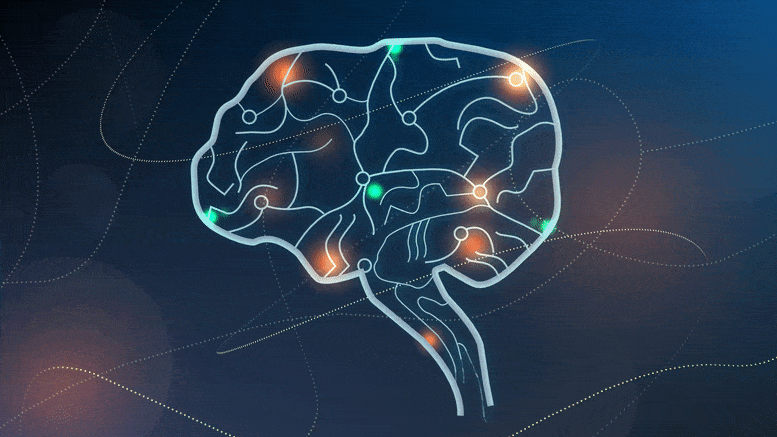
‘Cognitive clock’ may enable assessment of risk for memory and thinking problems.
How old is your brain compared to your chronological age? A new measure of brain health developed by researchers at Rush University Medical Center may offer a novel approach to identifying individuals at risk of memory and thinking problems, according to research results published in Alzheimer’s & Dementia: The Journal of the Alzheimer’s Association on June 1, 2021.
Dubbed the “cognitive clock” by the researchers, the tool is a measure of brain health based on cognitive performance. It may be used in the future to predict the likelihood of memory and thinking problems that develop as a person ages.
“Alzheimer’s disease, which is of the most common cause of dementia, and other diseases of the brain accumulate slowly over time as people get older. Age is widely recognized as the main risk factor for Alzheimer’s disease, but it’s a very imperfect predictor, since not everyone develops dementia as they age,” said Patricia Boyle, PhD, professor in Rush Medical College’s Division of Behavioral Sciences neuropsychologist in the Rush Alzheimer’s Disease Center (RADC), and lead author of the study.
“Our new cognitive clock provides a measure of brain health that tells us more about how well a person’s brain is functioning than chronological age. In this way, the clock can help us detect who is at the highest risk of developing cognitive impairment in the coming years.
“For some people, cognition remains fairly stable as they age,” Boyle added. “But, for others, cognition declines slowly over time, and still others show steep declines.”
The researchers believed that cognitive performance data, even using a simple cognitive screening test, could be used to distinguish people exhibiting normal cognitive aging from those who are on their way to developing memory and thinking problems that are often coupled with aging.
This thesis led the Rush researchers to look at data they acquired from several long-term studies conducted by the RADC, including the Rush Memory and Aging Project (MAP) which included people living in the community in greater Chicago; the Religious Orders Study (ROS), which included older Catholic clergy from across the United States; and the Chicago Health and Aging Project (CHAP), a biracial population-based study.
“We used long-term cognitive testing data from our participants to develop a profile of cognitive aging, what we call the cognitive clock,” Boyle said. “The cognitive clock reflects the general pattern of age-related cognitive decline and allows us to see who is doing better than average and who is doing worse at a given point in time. This helps us identify who might be at high risk of developing memory and thinking problems.”
The cognitive clock was first developed working with data from 1057 participants from the MAP and the ROS, who began without cognitive impairment and underwent yearly cognitive assessments for up to 24 years. The cognitive assessment included the Mini-Mental State Exam, a widely used test of cognitive function among the elderly that measures orientation, attention, memory, language, and visual-spatial skills. In addition to the MMSE, detailed evaluations also included a structured medical history, neurologic examinations, and a set of neurocognitive tests.
The researchers examined how cognitive performance changes over time with advancing age using a novel statistical approach to identify the typical profile of cognitive aging. Using this cognitive clock, researchers can estimate an individual’s cognitive age — their position on the clock — at any given point in time.
Cognitive age is an indicator of brain health. “We found that, on average, cognition remains stable until a cognitive age of around 80 years of age, then declines moderately until 90, then declines more rapidly until death,” Boyle said.
“Further, we found that cognitive age is a much better predictor than chronological age of dementia, mild cognitive impairment and mortality. It also is more strongly associated with other aspects of brain health.”
The researchers then applied the clock to an independent sample of 2,592 participants from CHAP to confirm its accuracy for predicting outcomes such as Alzheimer’s dementia, mild cognitive impairment, and mortality. Again, they found that cognitive age was a better predictor of these outcomes than chronological age.
“Essentially, what we did is use cognitive data collected over many years to create a single, easy-to-understand metric that may be used to predict health outcomes with good accuracy,” Boyle said.
This tool may serve as an aid in aging research moving forward and may offer a new tool to identify at-risk individuals.
“It is very difficult to develop a test or biomarker that accurately predicts health outcomes on an individual level. This has been a longstanding challenge in aging research. However, we are hoping that with additional research and validation, we may be able to extend the approach applied here to clinical settings,” Boyle said.
“Ideally, we could have a patient come into a clinic or hospital and complete a brief cognitive screen that gives us information to plug into a formula to estimate their cognitive age. That will provide important information about their brain health, and from there, we can estimate the likelihood of developing Alzheimer’s disease or dementia in the coming years. That would be an exciting advance.”
Reference: “The ‘cognitive clock’: A novel indicator of brain health” by Patricia A. Boyle, Tianhao Wang, Lei Yu, Robert S. Wilson, Robert Dawe, Konstantinos Arfanakis, Julie A. Schneider, Todd Beck, Kumar B. Rajan, Denis Evans and David A. Bennett, 1 June 2021, Alzheimer’s & Dementia: The Journal of the Alzheimer’s Association.
DOI: 10.1002/alz.12351